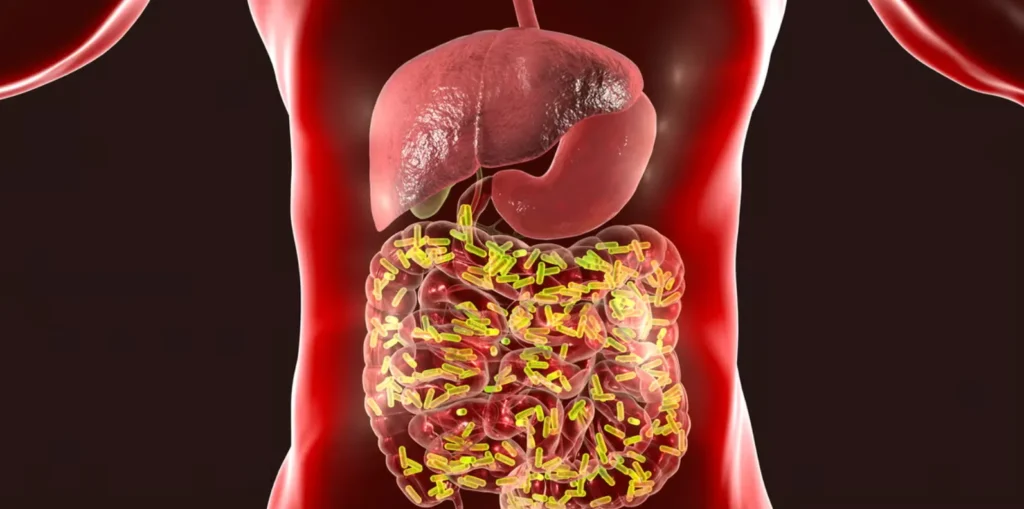Gut health and mental wellness are two aspects of human health that might seem unrelated at first glance. However, scientific research over the past few decades has increasingly demonstrated that the gut and the brain are inextricably linked. The connection between the gut and mental health largely revolves around the gut microbiome — the trillions of microorganisms, including bacteria, fungi, and viruses, that inhabit the gastrointestinal tract. These tiny organisms not only aid digestion but also play a crucial role in regulating mood, cognition, and mental health. This emerging field of research is known as the gut-brain axis, and understanding how it works is essential for both physical and mental well-being.
What Is the Gut Microbiome?
The gut microbiome consists of a diverse array of microorganisms that reside in the human digestive system. These microbes are crucial for many physiological processes, including digestion, immune system function, and even the synthesis of vitamins. More recently, scientists have discovered that the gut microbiome also affects brain function through a bidirectional communication system called the gut-brain axis. This complex communication system involves multiple pathways, including the nervous system (particularly the vagus nerve), the immune system, and various metabolic pathways involving hormones and neurotransmitters.
The Gut-Brain Axis: A Two-Way Communication
The gut-brain axis refers to the biochemical signaling that takes place between the gastrointestinal tract and the central nervous system. The vagus nerve, the longest cranial nerve in the body, plays a critical role in this communication, transmitting signals from the gut to the brain and vice versa. However, this relationship isn’t solely dependent on the nervous system; immune responses, hormones, and the production of neurotransmitters also contribute to gut-brain communication.
One of the most significant findings is that the gut microbiome can produce neurotransmitters, the chemicals that communicate information throughout the brain and body. For example, certain gut bacteria produce serotonin, often referred to as the “happiness hormone.” Serotonin is a neurotransmitter that plays a key role in regulating mood, sleep, and anxiety. In fact, about 90% of the body’s serotonin is produced in the gut, emphasizing the importance of gut health in mental wellness.
The Role of Gut Health in Mental Health Disorders
Increasingly, researchers are finding evidence that imbalances in the gut microbiome, known as dysbiosis, may be linked to a variety of mental health conditions, including anxiety, depression, and even neurodevelopmental disorders like autism spectrum disorder (ASD). Dysbiosis occurs when the diversity or abundance of gut microbes is altered, often due to factors like poor diet, stress, or antibiotic use. This imbalance can lead to inflammation, which has been implicated in both physical and mental health disorders.
Depression and the Gut
One of the most well-studied areas of gut-brain axis research is its relationship to depression. The connection between gut health and depression is complex, but there are several key mechanisms through which the microbiome may influence mood. For instance, some types of gut bacteria are responsible for producing short-chain fatty acids (SCFAs), which have anti-inflammatory properties and help maintain the integrity of the blood-brain barrier. When the gut microbiome is imbalanced, the production of SCFAs can decrease, leading to increased inflammation, which is associated with depression.
In addition, dysbiosis can affect the production of neurotransmitters like serotonin and dopamine, both of which are critical for regulating mood. Studies have found that individuals with depression often have altered gut microbiomes, with reduced diversity and an overgrowth of certain harmful bacteria. In fact, some researchers are exploring the potential of probiotics — supplements that contain beneficial bacteria — as a treatment for depression.
Anxiety and the Gut
Anxiety disorders, like depression, have also been linked to gut health. The gut microbiome influences the hypothalamic-pituitary-adrenal (HPA) axis, a key player in the body’s stress response. When the HPA axis is dysregulated, it can lead to increased anxiety and stress. Studies in animals have shown that altering the gut microbiome through diet or antibiotics can significantly impact anxiety-like behaviors, suggesting that the gut plays a direct role in anxiety regulation.
In humans, studies have found that individuals with anxiety disorders often have distinct gut microbiomes compared to those without anxiety. Researchers are increasingly interested in how probiotics and prebiotics (foods that promote the growth of beneficial bacteria) could be used to manage anxiety symptoms by restoring balance to the gut microbiome.
The Impact of Diet on Gut Health and Mental Wellness
Diet is one of the most significant factors influencing gut health and, by extension, mental wellness. A diet rich in fiber, fruits, vegetables, and fermented foods supports a healthy and diverse gut microbiome, while diets high in processed foods, sugar, and unhealthy fats can lead to dysbiosis. Several studies have shown that individuals who follow diets high in plant-based foods, such as the Mediterranean diet, tend to have lower rates of depression and anxiety. These diets are rich in prebiotic fibers that feed beneficial gut bacteria and promote the production of SCFAs, which have anti-inflammatory and mood-regulating effects.
Conversely, diets high in sugar and processed foods can promote the growth of harmful bacteria in the gut, leading to inflammation and the production of toxins that can negatively impact brain function. Emerging research suggests that the Western diet, characterized by high sugar and fat intake, may be partly responsible for the rising rates of depression and anxiety in many countries.
Probiotics and Mental Health
Given the strong connection between gut health and mental wellness, there has been growing interest in the use of probiotics to treat mental health disorders. Probiotics are live bacteria and yeasts that can help restore balance to the gut microbiome. Several studies have shown that advancements in probiotic manufacturing can lead to the creation of supplements intended to address occasional anxiety and depression, although more research is needed to determine which strains are most effective and how long the benefits last.
In addition to probiotics, prebiotics — fibers that feed beneficial gut bacteria — may also have a role in mental health treatment. Foods like garlic, onions, asparagus, and bananas are rich in prebiotic fibers that promote the growth of healthy gut bacteria, potentially improving mood and cognitive function over time.
Stress and Its Impact on Gut Health
Stress is another significant factor that can negatively affect the gut microbiome. Chronic stress can lead to changes in gut permeability (commonly known as “leaky gut”), which allows harmful substances to enter the bloodstream, triggering inflammation that can affect brain function. Stress also alters the composition of the gut microbiome, often leading to a decrease in beneficial bacteria and an increase in harmful bacteria.
Reducing stress through mindfulness practices, meditation, exercise, and adequate sleep can help protect the gut microbiome and, by extension, improve mental wellness. Stress management is a crucial part of maintaining both gut health and emotional well-being.
Conclusion
The relationship between gut health and mental wellness is a rapidly growing area of scientific inquiry. While the gut microbiome plays a well-established role in digestion and immune function, its influence on brain health and mood regulation is only beginning to be understood. The gut-brain axis serves as a critical communication pathway between these two systems, and maintaining a healthy gut may be key to managing mental health disorders like anxiety and depression.
Diet, probiotics, and stress management all play essential roles in supporting a healthy gut microbiome, which can have profound effects on mental wellness. As research in this field continues to evolve, there is growing potential for new treatments that target the gut to improve mental health outcomes, offering hope for millions of people worldwide.

